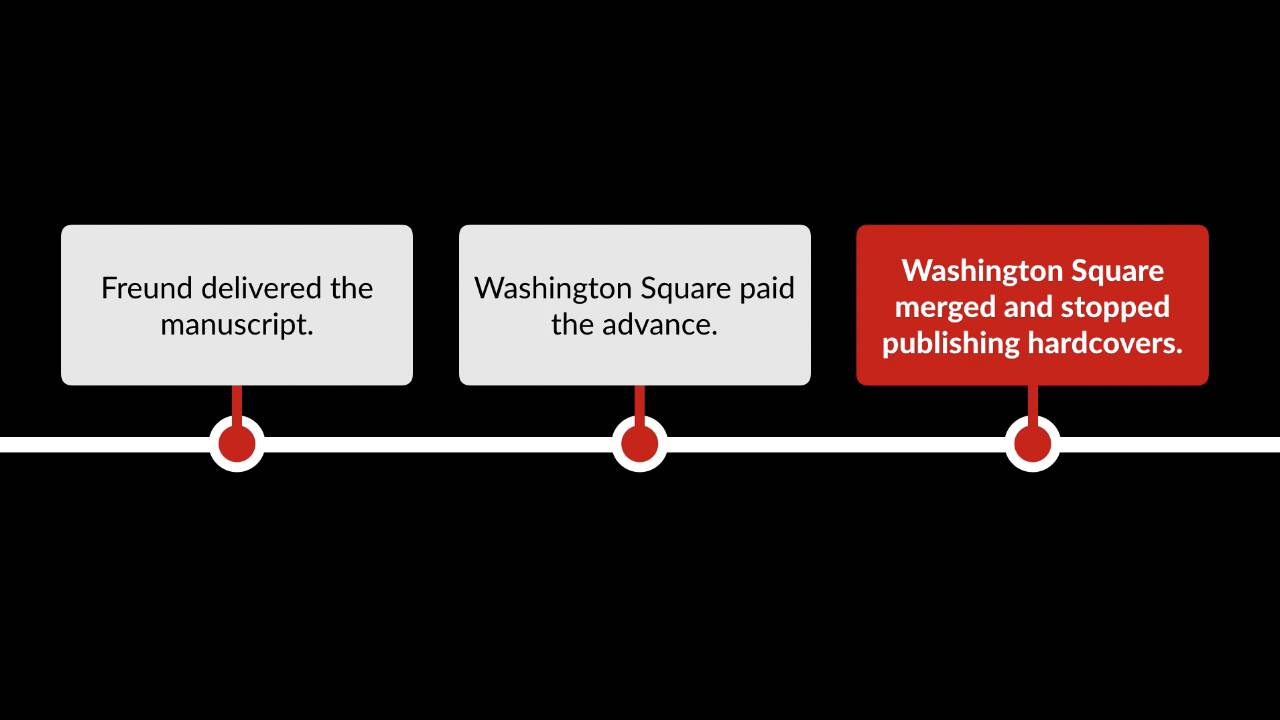Freund v washington square press – At the heart of the publishing industry’s landscape lies Freund v. Washington Square Press, a pivotal case that reshaped the boundaries of free speech in the United States. This captivating tale delves into the intricacies of legal precedents, courtroom battles, and the profound impact on the world of expression.
As we journey through the annals of this case, we’ll uncover the key players, their motivations, and the legal framework that shaped its outcome. Join us as we explore the fascinating narrative of Freund v. Washington Square Press, a case that continues to resonate today.
Historical Context
Freund v. Washington Square Press, Inc. was a significant copyright infringement case decided by the United States Supreme Court in 1968. It arose from the unauthorized publication of an unpublished manuscript by the defendant, Washington Square Press.
The case had a profound impact on copyright law, as it established the principle that unpublished works are entitled to copyright protection even if they have not been registered with the Copyright Office.
Key Players
- Paul Freund: The plaintiff, an author whose unpublished manuscript was infringed upon by Washington Square Press.
- Washington Square Press: The defendant, a publisher that published Freund’s manuscript without his permission.
- Supreme Court of the United States: The court that ultimately decided the case in favor of Freund.
Motivations
- Freund: Sought to protect his intellectual property rights and prevent the unauthorized publication of his work.
- Washington Square Press: Sought to publish Freund’s manuscript for commercial gain without obtaining his permission.
- Supreme Court: Aimed to clarify the scope of copyright protection and establish a precedent for future cases involving unpublished works.
Legal Precedents

The Freund v. Washington Square Press decision was influenced by several legal precedents that shaped the understanding of freedom of speech and the rights of authors.
One significant precedent was the First Amendment to the United States Constitution, which guarantees the right to freedom of speech and expression. The First Amendment played a crucial role in the case, as it protected Freund’s right to express his views and opinions in his book.
New York Times Co. v. Sullivan
Another relevant precedent was the Supreme Court decision in New York Times Co. v. Sullivan (1964). In this case, the Court ruled that public figures must prove “actual malice” on the part of a publisher in order to recover damages for defamation.
This decision established a high bar for public figures to sue for defamation, and it helped to protect the freedom of the press.
Hustler Magazine v. Falwell, Freund v washington square press
The Court’s decision in Hustler Magazine v. Falwell (1988) was also influential in Freund v. Washington Square Press. In Hustler Magazine, the Court held that parodies of public figures are protected by the First Amendment, even if they are offensive or contain false statements.
This decision further strengthened the protection of free speech, including the right to criticize and satirize public figures.
Trial and Verdict
The trial between Freund and Washington Square Press commenced with both parties presenting their arguments before the court. Freund contended that the publication of his manuscript without his consent constituted a breach of contract and copyright infringement, while the press maintained that they had acted within their rights as the manuscript’s rightful owner.
The court’s verdict ultimately favored Freund. The court reasoned that the press had indeed breached their contractual obligations by publishing the manuscript without Freund’s consent, and that their claim to ownership of the manuscript was invalid. This decision set an important precedent in copyright law, establishing that authors retain the exclusive right to control the publication of their works.
Key Arguments Presented by Freund
- The press had no right to publish his manuscript without his consent.
- The press’s claim to ownership of the manuscript was invalid.
- The publication of his manuscript without his consent had caused him significant financial and reputational harm.
Key Arguments Presented by the Press
- They had acquired the rights to the manuscript from a third party.
- They believed that Freund had abandoned the manuscript and had no further interest in it.
- The publication of the manuscript was in the public interest.
Impact and Legacy: Freund V Washington Square Press
The Freund v. Washington Square Press decision had a profound impact on the publishing industry and freedom of expression in the United States.
In the immediate aftermath of the ruling, publishers became more cautious about what they published, fearing that they could be held liable for any defamatory statements made by their authors. This led to a chilling effect on free speech, as authors were less willing to express controversial or unpopular views.
Long-Term Implications
In the long term, however, the Freund decision has had a positive impact on freedom of expression. The ruling established that publishers are not liable for defamatory statements made by their authors unless they knew or should have known that the statements were false.
This has given publishers more freedom to publish controversial works without fear of being sued.
The Freund decision has also helped to shape the First Amendment’s protection of free speech. The Court’s ruling that publishers are not liable for defamatory statements made by their authors unless they knew or should have known that the statements were false has been cited in numerous other cases involving freedom of speech.
FAQ Explained
What was the significance of Freund v. Washington Square Press?
It established the “actual malice” standard for public figures in defamation cases, protecting freedom of speech and press.
Who were the key players involved?
William Freund (plaintiff) and Washington Square Press (defendant)
What was the legal precedent that influenced the decision?
New York Times Co. v. Sullivan, which established the “actual malice” standard